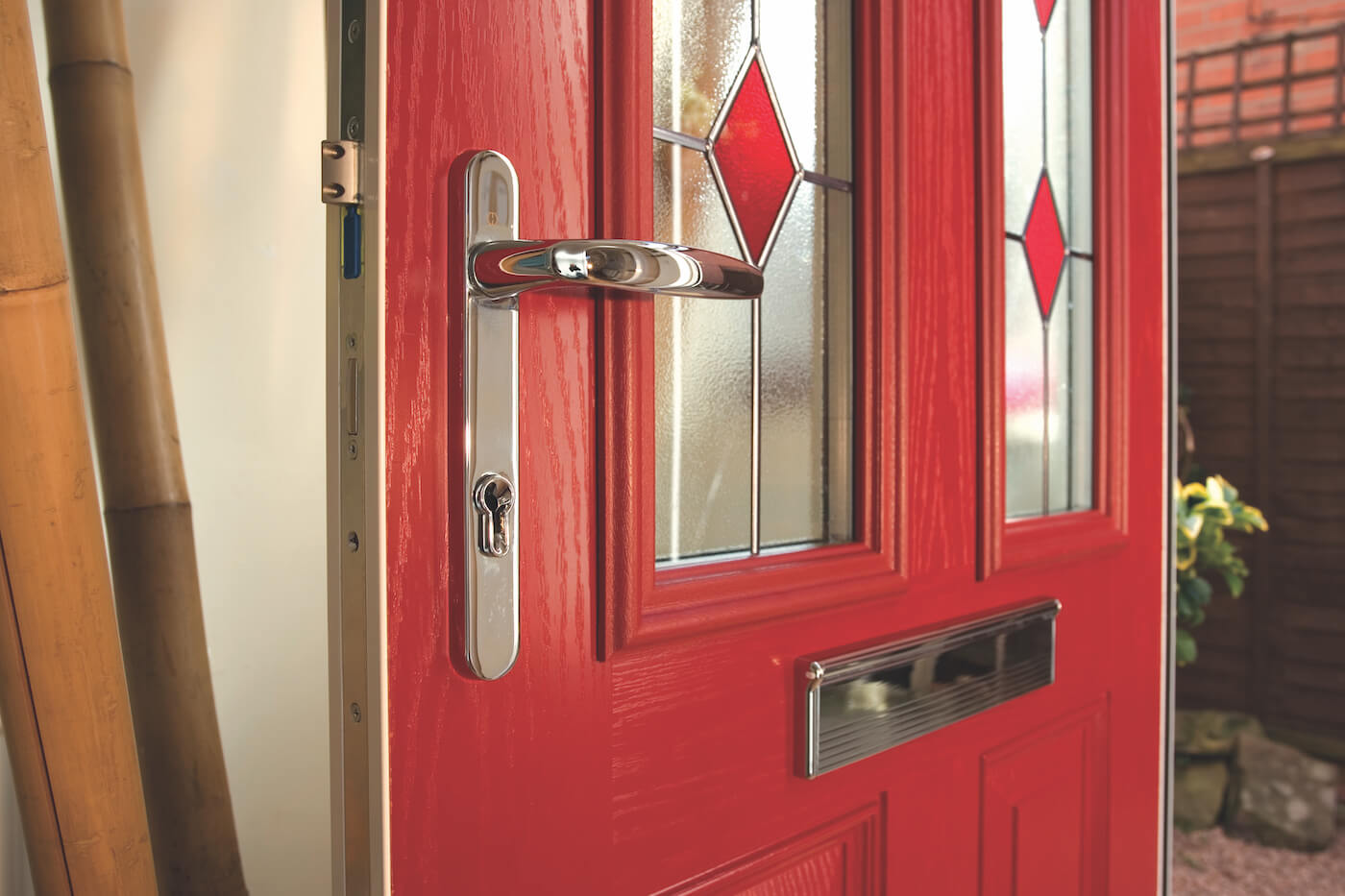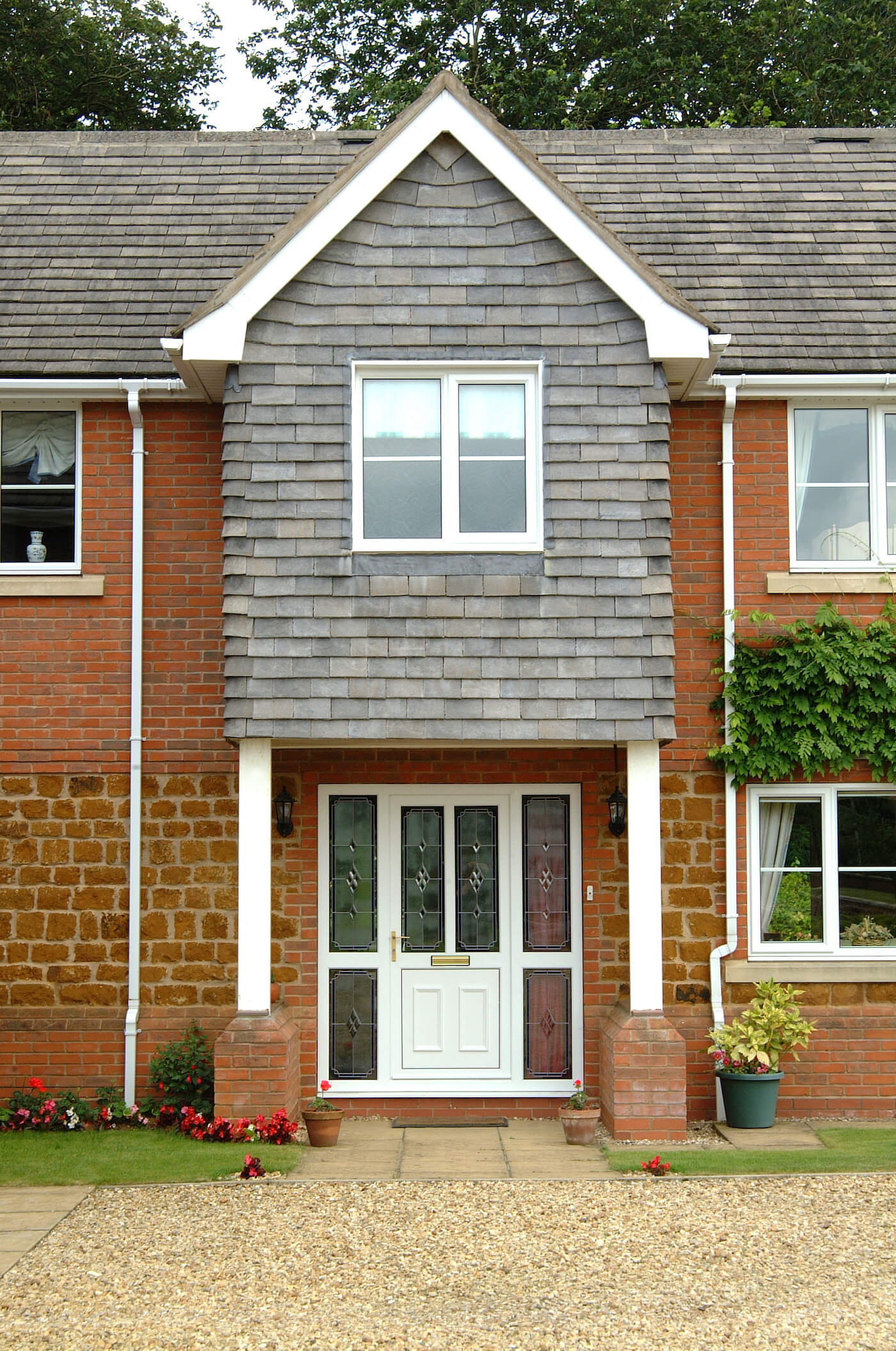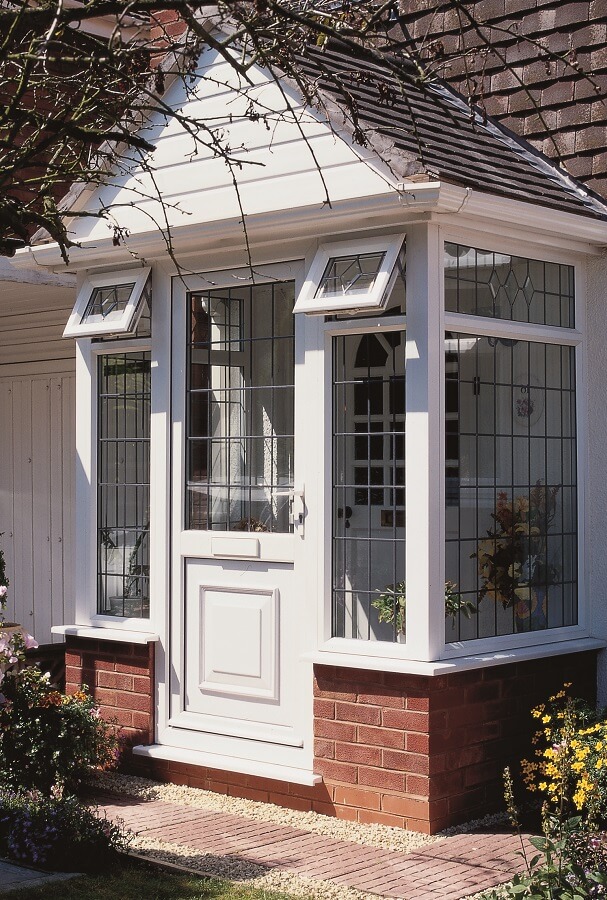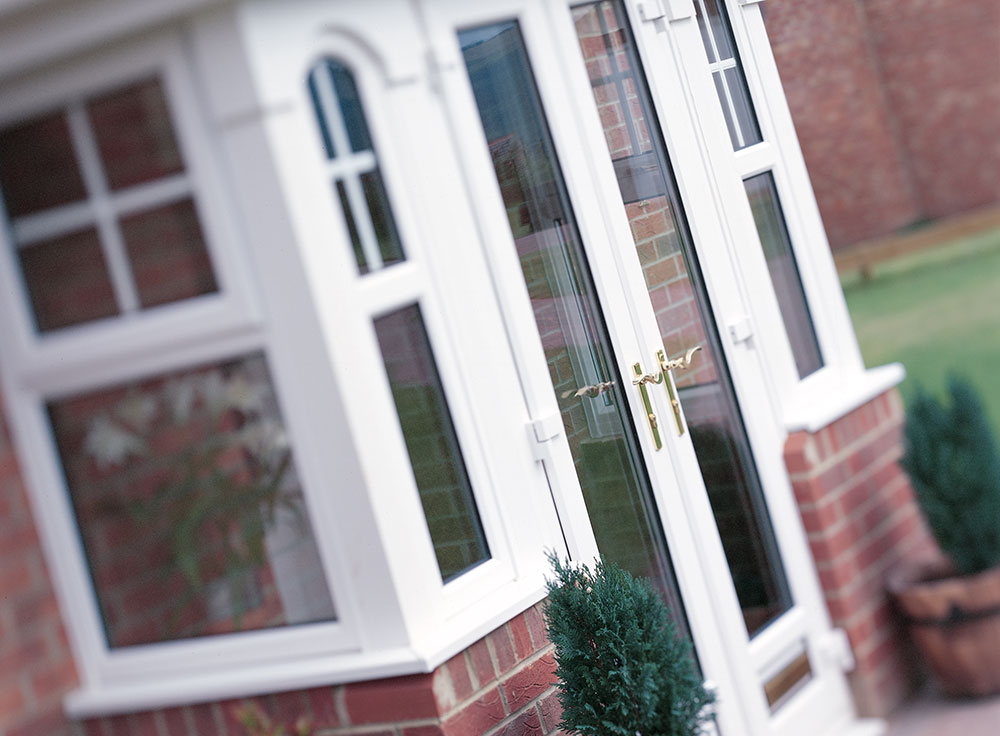TL;DR – Quick Comparison
| Feature | uPVC Doors | Composite Doors |
| Affordability | Budget-friendly | Higher cost |
| Security | Strong, with modern locks | Excellent, often enhanced with multi-point systems |
| Thermal Efficiency | High, especially Eurocell profiles | High due to dense core |
| Durability | Resistant to rot, rust, and warping | High thanks to GRP and foam core |
| Aesthetic Appeal | Wide range of colours | Wide range of colours |
| Maintenance | Very easy with an occasional wipe | Low maintenance |
Choosing the right front door is one of the most important decisions a homeowner can make. With factors like security, energy efficiency, cost, and durability all playing a role, the debate between uPVC vs composite doors continues to be a key discussion for installers advising customers.
At TWR Group, we fabricate and supply high-quality Eurocell uPVC doors that offer a practical, reliable, and stylish solution for installers across the UK. But how do they compare with composite doors? This guide will give you the insights you need to help your customers make the best choice for their homes.
What is a composite door?

A composite door is made from a blend of materials, including wood, foam, uPVC, and GRP (glass reinforced plastic). This combination of materials results in a door that offers excellent durability, security, and insulation.
They typically have a timber-effect skin, reinforced door frame, and a dense core that enhances strength. Their aesthetic appeal makes them a popular choice for homeowners seeking a premium new door.
What is a uPVC door?
A uPVC door, like those fabricated using Eurocell profiles at TWR Group, is made from unplasticised polyvinyl chloride. These doors are known for their affordability, thermal efficiency, and low maintenance.
uPVC doors are ideal for both front and back doors, offering excellent performance at a competitive price. They’re available in a wide range of colours and styles, including options with glass panels for added light.
uPVC vs composite doors: Key comparison
-
Security
Composite doors often offer superior security due to their thickness and combination of materials. That said, Eurocell uPVC doors come with high-quality multi-point locking systems, offering strong protection against intruders.
-
Thermal Efficiency & Insulation
Composite doors typically outperform due to foam cores and thicker construction. However, Eurocell uPVC doors feature airtight seals and engineered chambers to minimise heat loss and block draughts. In terms of energy efficiency, both options are excellent and quality uPVC doors perform impressively well.
-
Durability & Lifespan
Composite doors are extremely durable, resistant to bad weather, rot, and wear. Their life span often exceeds 30 years. uPVC doors also offer impressive longevity, often lasting 20–25 years with low maintenance. uPVC offers fantastic performance with a longer-than-average life span for the price.
-
Cost & Affordability
uPVC is the clear winner for affordability. It’s ideal for budget-conscious homeowners who want reliability without overspending. Composite doors come at a premium but offer a range of benefits and a more solid, heavyweight feel. For installers targeting customers with tighter budgets, uPVC is the clear recommendation.
-
Style & Aesthetic Appeal
Composite front doors offer an authentic timber-look finish with modern designs and bold colours. uPVC doors have come a long way, now available in a wide range of colours, woodgrain effects, and sleek glass panel options.
When should installers recommend uPVC doors?

uPVC doors are ideal when:
- Affordability is key
- The homeowner values low maintenance
- Energy efficiency is important
- Installation speed and ease are required
- A back door is needed with practical functionality
When are composite doors the better choice?
Composite doors are ideal when:
- A premium front door is desired
- The homeowner prioritises high security
- Maximum thermal efficiency is required
- A traditional or timber-like look is preferred
- There’s a willingness to invest more for longevity
TWR Group’s uPVC residential doors
Our Eurocell uPVC front and back doors are a favourite among UK installers thanks to:
- Enhanced thermal efficiency with airtight seals
- Compatibility with advanced locking hardware
- A wide range of styles and colours
- Quick and accurate installation
- Excellent performance in bad weather conditions
Manufactured in our new state-of-the-art Sunderland facility, every uPVC door is built to deliver exceptional quality and peace of mind for both homeowners and installers.

Why choose TWR Group?
TWR Group is a trusted UK supplier for trade professionals, with over 20 years of experience in uPVC fabrication. We offer Eurocell uPVC doors, expert technical support, competitive trade pricing, and reliable nationwide delivery. Our convenient trade counters and professional service ensure a seamless, efficient experience from order to installation.
Whether your customer needs an affordable uPVC back door or a stylish front door solution, TWR Group has the product to match. Our technical experts are on hand to support you from specification through to delivery.
Contact our trade team today to discuss your next uPVC door project and find out how our high-performance uPVC door solutions can support your business and impress your customers.
FAQs
Q: What’s the main difference between uPVC and composite doors?
Composite doors combine materials for strength; uPVC is more affordable and energy-efficient.
Q: How long do uPVC and composite doors last?
uPVC lasts 20–25 years; composite doors can exceed 30 years with low maintenance.
Are uPVC doors durable enough for UK weather?
Yes. Eurocell uPVC doors resist rot, warping, and harsh UK weather, offering strong durability and a long-life span.

